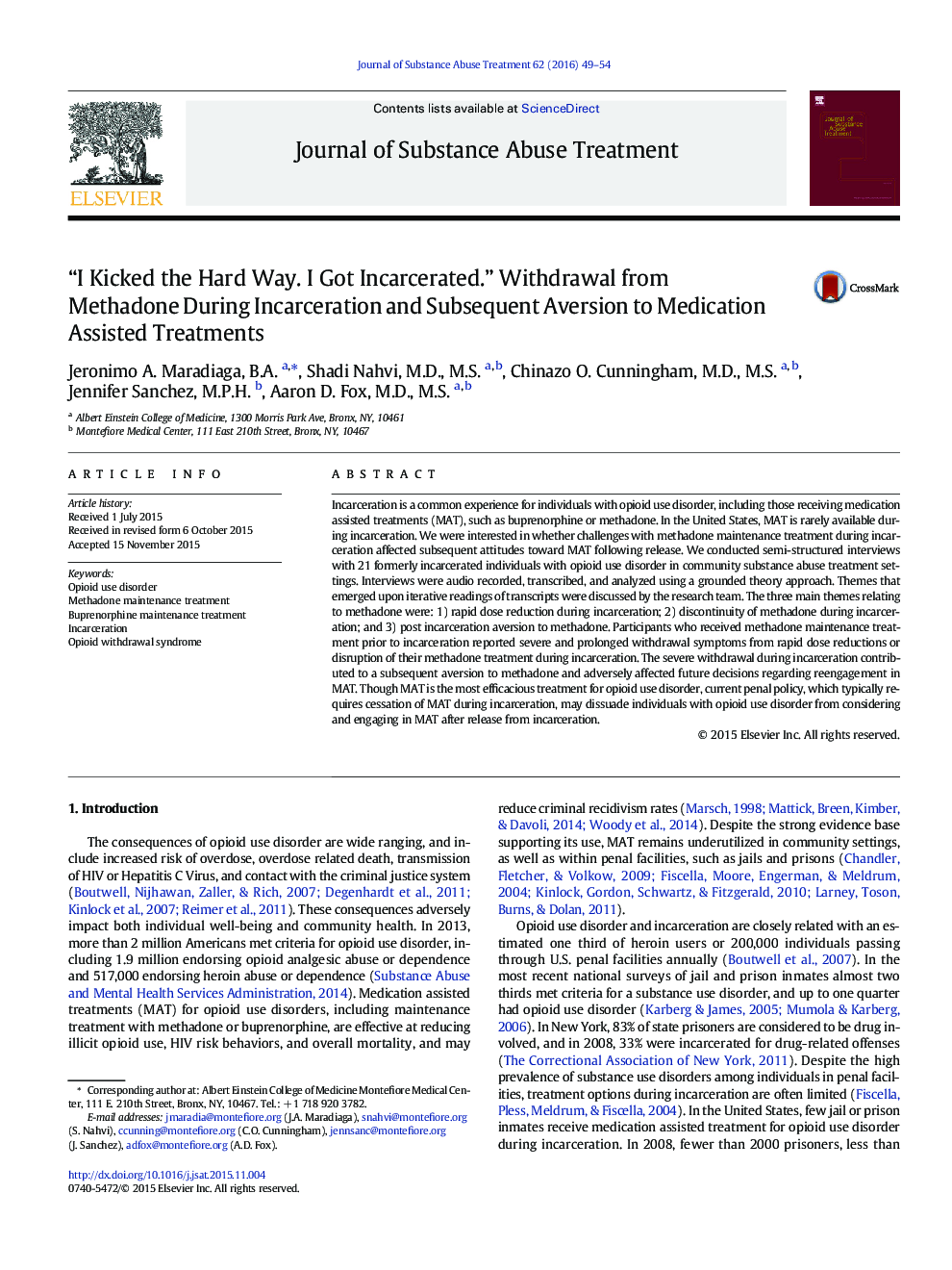| کد مقاله | کد نشریه | سال انتشار | مقاله انگلیسی | نسخه تمام متن |
|---|---|---|---|---|
| 329647 | 543574 | 2016 | 6 صفحه PDF | دانلود رایگان |
• This qualitative study examined the barriers to evidence-based opioid agonist treatment in formerly incarcerated individuals with opioid use disorder in the Bronx, NY.
• Inadequate access to methadone maintenance treatment during incarceration was perceived to be a barrier to opioid agonist treatment post-release.
• Subjects who received methadone prior to incarceration reported high levels of withdrawal symptoms during incarceration, which led to subsequent aversion to opioid agonist treatment post-release.
• Policies of American penal facilities may be discouraging individuals with opioid use disorder from seeking opioid agonist treatment upon re-entry.
Incarceration is a common experience for individuals with opioid use disorder, including those receiving medication assisted treatments (MAT), such as buprenorphine or methadone. In the United States, MAT is rarely available during incarceration. We were interested in whether challenges with methadone maintenance treatment during incarceration affected subsequent attitudes toward MAT following release. We conducted semi-structured interviews with 21 formerly incarcerated individuals with opioid use disorder in community substance abuse treatment settings. Interviews were audio recorded, transcribed, and analyzed using a grounded theory approach. Themes that emerged upon iterative readings of transcripts were discussed by the research team. The three main themes relating to methadone were: 1) rapid dose reduction during incarceration; 2) discontinuity of methadone during incarceration; and 3) post incarceration aversion to methadone. Participants who received methadone maintenance treatment prior to incarceration reported severe and prolonged withdrawal symptoms from rapid dose reductions or disruption of their methadone treatment during incarceration. The severe withdrawal during incarceration contributed to a subsequent aversion to methadone and adversely affected future decisions regarding reengagement in MAT. Though MAT is the most efficacious treatment for opioid use disorder, current penal policy, which typically requires cessation of MAT during incarceration, may dissuade individuals with opioid use disorder from considering and engaging in MAT after release from incarceration.
Journal: Journal of Substance Abuse Treatment - Volume 62, March 2016, Pages 49–54
